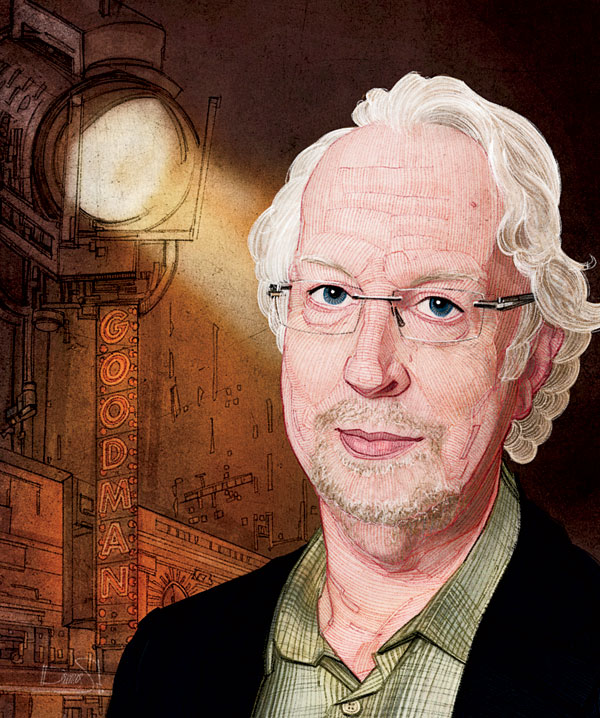
Growing up in a small town in Illinois, I was this major oddity. As a child, I just started putting on plays. I had seen Forrest Tucker in a national tour of The Music Man with my parents. I had memorized all the songs on the original cast album with Robert Preston by the time I was 8. I had these scrapbooks on, like, Mike Nichols and Elaine May when I was 11.
I was told I was too tall to be an actor. I didn’t mind. I didn’t feel rejected. It’s one thing to be Clint Eastwood and be 6-foot-4. It’s another to be me and 6-foot-4.
I was 23 and had been in Chicago only two years when I ended up at the old Wisdom Bridge Theatre in Rogers Park. They needed a new artistic director. It sounds very fancy, but basically it meant I’d be there at 8 in the morning cleaning toilets before opening the ticket office.
Unbeknownst to me, because I wasn’t there that night, Tennessee Williams came to see A Streetcar Named Desire at Wisdom Bridge. It was only 200 seats, and he was out of his mind the entire play, talking back to characters and laughing, like over-the-top hysterical laughter. At the end, when the nurse and doctor come and put Blanche DuBois in a straitjacket, it’s a terrifying scene. Williams shouted out, “Oh, that Miss Blanche. You know she’s gonna talk her way out of the asylum in two days.” He just found it hilarious.
Ultimately, I got to work with him. But when you tell these kids, “I worked briefly with Tennessee Williams,” you might as well be saying, “I worked with Aeschylus” or “Back when Aristophanes and I were knocking around some ideas for a comedy …” They look at me like, “Jesus Christ, we knew you were old, but not that old.”
I don’t carry a lot of sentimentality for the old days. I’m a man doomed to live in the present.
My parents saw a lot of my work throughout my career. But I don’t think they understood a damn thing. They could never focus on the play. They were so caught up in “That’s my son!”
Advertisement
I’m not a particularly bright human being, but I do have a high social IQ. It’s the weird ability to quickly read people and situations and meld with them. It’s probably the only part of directing that can’t be learned. I rely on it.
Actors have to be incredibly vulnerable to do what they do. It’s dangerous and brave. And they can’t do it unless they feel safe and protected.
A lot of theater bores me at this point. And I include my own work in that.
I love the experience of long-form pieces. I’m the only person I know who did two five-and-a-half-hour plays back to back. You kind of relax into the fact that you’re going to be there for a long time, sharing something with other human beings in the room. It’s, like, time-altering.
Our brains have been rewired because of media and social media. Everything keeps moving faster, faster, faster. But in the theater, it just kind of stops.
It’s terrible to live with me when I’m starting a new play. The first week we’re in rehearsal, I come home on an ecstatic high. And then week 2 is nothing but pure self-loathing. I will crawl into bed and live in the darkness until I go to work again. It’s an emotional process. I don’t think it’s any easier for my wife.
I’d rather have audiences pissed off about what they saw than walk out unaffected and oblivious. You can’t please everyone, so you might as well deliberately try to not please a few.
People have been predicting the death of the theater for hundreds of years. It doesn’t happen.


